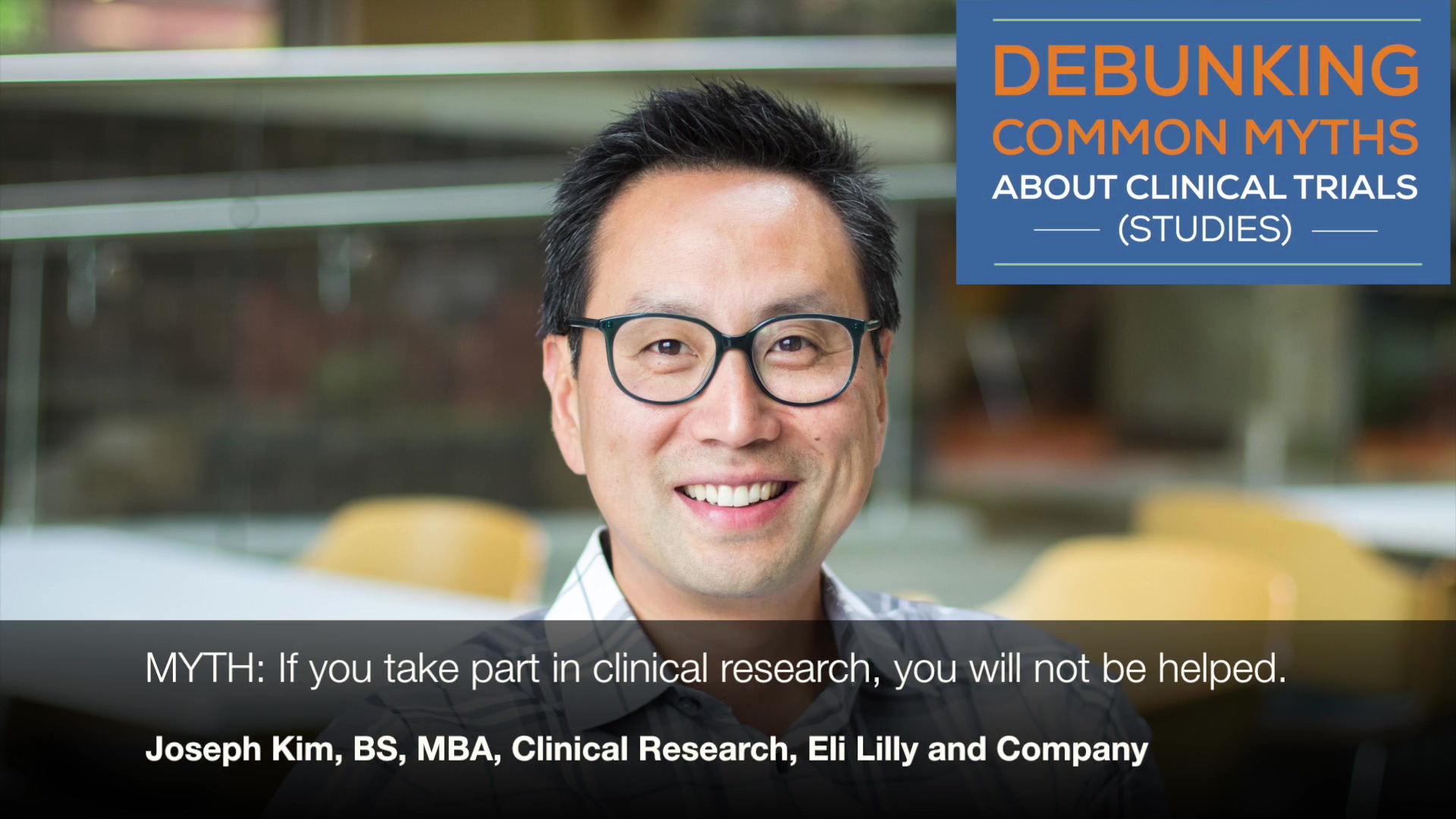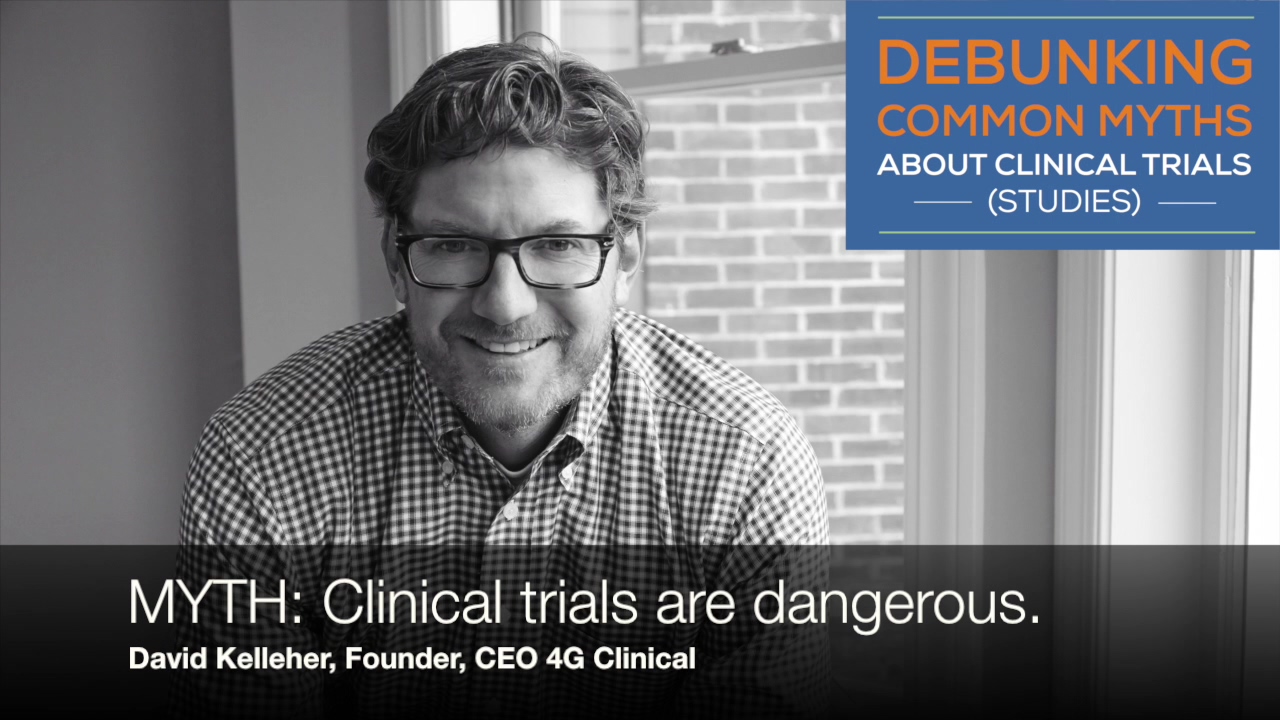4G Clinical is proud to support CISCRP's (Center for Information & Study on Clinical Research Participation) Debunking Common Myths campaign by launching a video series to help increase clinical research literacy by directly addressing misconceptions.
In this video you will hear from T.J. Sharpe, a Melanoma Survivor, patient advisor and previous trial participant on the use of placebos in clinical studies.
Related Videos:
 |
 |
-thumb.jpeg?width=1920&name=Joe%20Kim%202%20Complete%20(1)-thumb.jpeg) |
Read the transcript:
Placebos: What are they and what do they mean to me as a patient?
Hi, my name is T.J. Sharpe. I am a Melanoma survivor, a patient advisor, and a two-time clinical trial participant. I'm here today to talk to you about the myth surrounding placebos. Am I just getting a sugar pill? Will I not get study drug?
I would like to thank 4G Clinical for sponsoring this video. Their mission is to bring crucial medicines to patients faster, by accelerating the work in clinical trials. That mission means a lot to me as a clinical trial saved my life. That's why debunking these myths are very important. As a participant, we won't have medicines without clinical trial participation; as a patient, we need to educate ourselves on the realities of clinical trials to make the best decisions for our healthcare.
So, what is a placebo? Well, a placebo is a sugar pill that does neither harm nor good. It is necessary to be used in many clinical trials as a control arm. Part of the scientific method that we all learned about at some point in high school allows scientists to compare data by randomly assigning a patient to either an experimental part of the treatment or a control part of the treatment. Placebo is given so a person doesn’t simply do better because they think they're getting medication. That is known as the placebo effect and it is a real phenomenon.
I just explained a placebo is used in place of the active medication in randomized trials. Trials that you may be interested in learning about. Randomization happens to each arm, or segment of a trial. That segment is based on the specific treatment-type including the placebo or standard of care arm.
Now I just mentioned standard of care. Placebos are not always used, for ethical reasons. When a standard of care does exist, that is an existing approved treatment has been deemed to be effective for a particular serious illness, then it would be unethical and very inhumane in those cases to deny a patient treatment. For those situations, instead of a placebo a standard of care is utilized to allow experimental treatment to be compared to existing treatment, apples to apples.
Will you know if you’re on the placebo? For some trials you may know immediately what arm of the trial you are on. But for placebo control trials, they are usually blinded or double blinded. Blinding is the patient not knowing what medicine they are taking. Double-blinded means the patient and their doctor will not know what medicine that patient is on. In the case of double blinding, only the person who prepares the medicine will know what arm of the trial you will be on. They will not reveal it unless there is a serious rare circumstance where a patient's health may be in danger.
Now to wrap up, the placebo is a sugar pill. It is given so that the placebo effect does not affect the results of a clinical trial. This allows researchers to test apples to apples when evaluating new medicines for patients, and is in use in place of activate medication in some places or a standard of care is used rather than a placebo in others. My name is T.J. Sharpe, thank you for listening and good luck on your medical journey.
Tag(s):
Industry Voices
